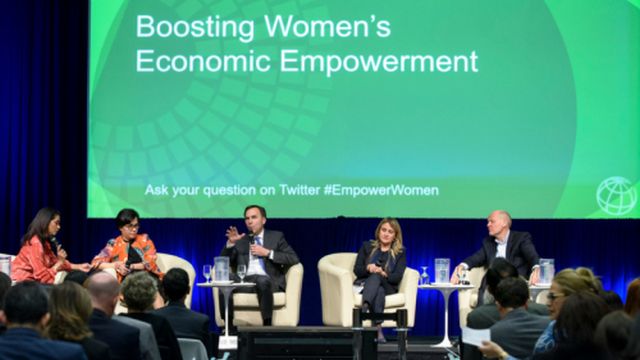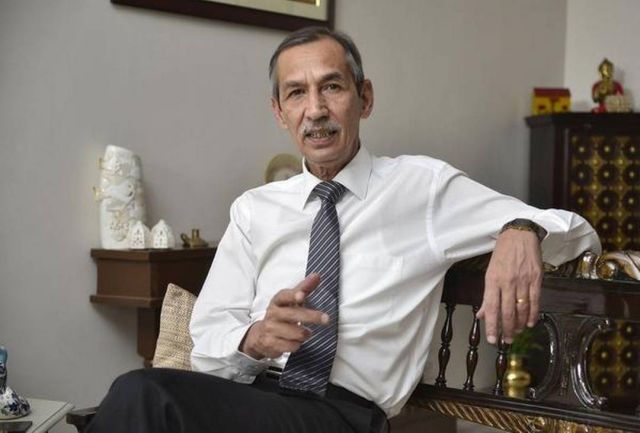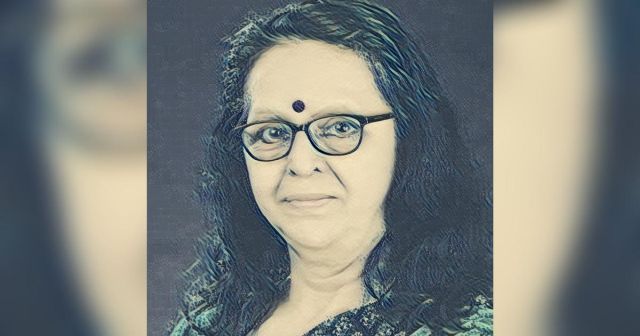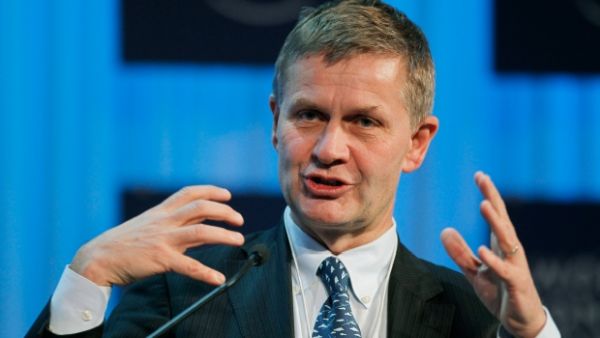
by Editor | May 25, 2021 | News, Politics
 New Delhi : Prime Minister Narendra Modi has said that there has been significant improvement in the internal security situation in the last four years with “recurrent terror attacks that were common under the UPA” now being history and Maoist violence declining by 20 per cent in the affected areas.
New Delhi : Prime Minister Narendra Modi has said that there has been significant improvement in the internal security situation in the last four years with “recurrent terror attacks that were common under the UPA” now being history and Maoist violence declining by 20 per cent in the affected areas.
In an interview with ‘Swarajya’ magazine, the Prime Minister said: “I would like to salute our brave security forces who are eternally vigilant and are ensuring peace as well as prosperity for 125 crore Indians.
“You can ascertain our security situation from the fact that recurrent terror attacks that were common under the UPA are now history.”
Describing his vision for Jammu and Kashmir, which is under Governor’s rule after the BJP withdrew its support last month from the ruling coalition led by the PDP, Modi said: “In Kashmir, our goal is good governance, development, responsibility and accountability.”
Asked about possibility of dialogue with stakeholders in Kashmir, he avoided a direct answer.
“We have appointed an interlocutor and he is in touch with many people. He is travelling to the interiors and engaging with people.”
On Maoist front, the Prime Minister said geographically, the influence of Maoist violence has shrunk substantially.
“The numbers vis-a-vis Maoist violence in the last four years should make every Indian happy. Maoist violence has declined by 20 per cent in the affected states, with a concomitant reduction of 34 per cent in deaths in 2017 compared to 2013,” he said.
Asked whether the area under Left Wing Extremism (LWE) has really shrunk, Modi said 44 out of 126 districts have been removed from the list of LWE-affected areas based on changed ground realities.
“These are the districts that did not see any violence for the last four years.
“It (LWE) adversely impacts the psyche of the local population… Due to the government’s policies, about 3,380 Maoists surrendered from 2014 to 2017. From 2010 to 2013, the number stood around 1,380,” he said.
Asserting that only development can solve people’s problems, Modi said that his government adopted the approach to devote unparalleled resources towards the development of areas prone to violence.
“It is true that Maoist violence had stalled the progress of many districts in central and eastern India. That is why in 2015, our government formulated a comprehensive ‘National Policy and Action Plan’ to eradicate Maoist violence.
“Along with zero tolerance towards violence, we have also focused on a massive push to infrastructure and social empowerment to bring a positive change in the lives of the poor people in these regions.
“The unparalleled development focus is reaping rich dividends,” he said, adding that about 4,500 km of roads have already been built in 34 Maoist-affected districts.
“Work at such speed and scale was not even imaginable,” Modi said.
Asked about the threat to his life, the Prime Minister said: “Whenever I am travelling, I see that a lot of people, from all age groups and sections of society, are out on the streets to greet me and welcome me.
“I can’t just remain seated in my car, aloof from their display of affection and care. That is why I invariably get down and greet, interact with people as much as I can.
“I am not a Shahenshah or an imperious ruler who is unaffected by their warmth. Being among people gives me lot of strength,” he said.
Modi also said the security situation in the Northeast has improved tremendously.
“In 2017, we had the lowest insurgency-related incidents and casualties among civilians and security forces in the last 20 years,” he said.
—IANS

by Editor | May 25, 2021 | Interviews, World
 By Vishal Gulati,
By Vishal Gulati,
Da Nang (Vietnam) : Women everywhere still face everyday disadvantages. Empowering them will unlock new potential to tackle environmental challenges, President of the Marshall Islands, Hilda C. Heine, has said.
“The GEF (Global Environment Facility) has long emphasised on gender – still, every woman, especially in our Pacific nations, needs to walk the talk and make sure that they enjoy the same economic rights as men,” Heine, the first woman to lead an independent Pacific Island nation, told IANS in an interview.
Heine, who was elected President of the Marshall Islands in January 2016, was in this Vietnamese tourist resort city to address the GEF Assembly, the organisation’s highest governing body.
The assembly saw attendance of 1,200 delegates, including ministers and other representatives, from all its 183 member-countries, with bold commitments for action to avoid an environmental catastrophe.
“We have to keep working for gender-responsive government policies and programmes; decision-making and leadership; economic empowerment; ending violence against women, and ensuring effective education and sexual reproductive health services,” Heine contended.
She advocated that building capacity on gender equality also helps catalyse actions that have the potential to materialise greater environmental impact.
For Heine, the low-lying nations like hers are still grappling with an existential threat in the face of the growing global environmental crisis.
According to her, the GEF, the world’s foremost institution for financing environmental change, has given a billion dollars in grants to safeguard the environment.
“The work of GEF supporting developing countries with nationally-led emission reduction efforts and protection for millions of people vulnerable to climate change has saved lives and improved our chances for survival. Still we need a political momentum in tackling climate challenges,” a confident Heine said.
Around 50 heads of government will hold the world’s first-ever virtual summit on November 22 that Heine announced at the GEF Assembly.
The carbon-free summit will bring together leaders of the 48-nation Climate Vulnerable Forum (CVF), which represents many of the countries most threatened by climate change.
Heine, who will soon assume the chairmanship of the CVF, announced that the summit would be convened entirely online as a “Virtual Summit”, showcasing intentions to work in new and innovative ways and to build broader coalitions.
The summit was immediately acknowledged by global leaders like French President Emmanuel Macron and California Governor Edmund G. Brown Jr. Heine said it is a crucial step for helping to renew political momentum and awareness to enable the vulnerable to survive and thrive.
“Our summit will be showcasing our intensions to work in new and innovative ways and to build broader coalitions across society for the change we need.
“Small countries like mine are showing leadership through ambitious mitigation targets, we want every country to step up the ambition of their own NDCs (nationally determined contributions) if we are to stay within the 1.5 degrees Celsius temperature limit we set in Paris (in 2015),” she said.
“We are working hard to match our international engagements at the national level. Under our 2025 climate target, we have committed to a 32 percent reduction in emissions compared to 2010 levels, and we have already committed to bringing forward new and more ambitious target for 2030.”
The former Education Minister, whose country played a crucial role at the 2015 Paris climate summit, is confident that optimising tapping of renewable energy sources could help overcoming climate change mitigations.
Heine said GEF’s work supporting developing countries with nationally-led emission reduction efforts and protection for millions of people vulnerable to climate change has saved lives and improved chances for survival.
She praised GEF’s contribution to addressing chemicals and pollutants played a pivotal role in paving the way for a recovery of the ozone layer.
Describing the CVF summit as an important opportunity to accelerate action towards a low carbon future, GEF CEO and Chairperson Naoko Ishii said: “At this critical time, we all need to raise our climate ambitions and the GEF is committed to transformational change.”
“In its new four-year investment strategy, GEF puts a strong emphasis on financing for Least Developed Countries and Small Island Developing States,” she added.
The Sixth GEF Assembly, held once in four years, took place from June 27 to 28 here. It also saw the presence of President David Granger of Guyana and Prime Minister Nguyen Xuan Phu of Vietnam.
(Vishal Gulati was in Da Nang for the Internews’ Earth Journalism Network Biodiversity Fellowship Programme at the Sixth Global Environment Facility (GEF) Assembly. He can be reached at vishal.g@ians.in )
—IANS

by Editor | May 25, 2021 | Interviews

Lt. General (retd) Deependra Singh Hooda
By Mohd Asim Khan,
New Delhi : The Indian side was prepared for escalation — in case Pakistan chose to do so — while conceiving and executing the 2016 surgical strikes by crossing the Line of Control (LoC) along the Jammu and Kashmir border, according to the army general who oversaw the strikes.
“We had sort of war-gamed all the contingencies of what could be the impact of the surgical strike. And one of the things that we did consider was that in case Pakistan decides to escalate, then what do we have to do,” Lt. General (retd) Deependra Singh Hooda, who planned and oversaw the execution of the operation as the General Officer Commanding (GoC) of the Northern Command, told IANS in an interview.
“And we had put plans in place of what is to be done in various areas. I can’t go into details, but definitely it was something that we considered,” he added.
On the intervening night of September 28-29, 2016 — 11 days after the Uri attack by militants from across the border — a group of Indian Army commandos crossed the LoC and in a pre-emptive strike destroyed several launch pads of militants in Pakistan-administered Kashmir. The Army estimated that 30-70 militants and their handlers were killed in the strike The highly-decorated officer retired from the Army on November 30th, the same year.
Hooda also said they knew there would only be a “limited” kind of response from Pakistan side, if at all.
“I was clear in my mind that the surgical strike was not going to lead to something like an all-out war between the two countries. That wouldn’t have happened because Pakistan military’s capabilities in that sense are limited. So I am not sure they would have decided to escalate to that extent,” Hooda said.
“But, yes, some local border incidents, in a kind of escalation, was something that we had in our mind,” he added.
Hooda said that this was not the first time that such a cross-LoC operation was done — in fact such things go on a “fairly regular basis” in a limited manner — but the surgical strike of 2016 was different from earlier similar operations primarily in two ways.
“Similar operations had been done in the past on multiple occasions. It’s been happening for years. It’s not as if it was for the first time. The difference was that this time around the scale was larger, and more importantly, the government decided to own up and say yes we did it. Whatever had been done in the past was never officially accepted,” Hooda said.
He said that it was a “very high risk” operation and he was worried about what would happen if something went wrong — like a soldier being captured — or how to evacuate a soldier if he was injured or killed.
“The exfiltration after the operation was actually a more risky task. But again, we had planned the contingencies. We had prepared to send more people across to get our boys out,” he said.
He said that Pakistan kept saying the surgical strike had not happened, but in fact there was considerable panic on the Pakistani side.
“We were listening to their radio conversation after the strikes and there was a fair amount of panic on the other side. They cancelled their leaves, more high alerts were sounded, and they kept telling each other to be careful as ‘these guys may come across again’. There was psychological pressure on the Pakistanis,” Hooda said.
After the operation, Hooda said, the morale of India soldiers went “sky high”.
“You could have seen it in their faces. The fact that they had gone across the border, done the operation and came back successfully without anybody getting injured was a great feeling. It was a complex operation. There was a huge confidence that we can do it again, which is a big thing because if you have a failure, then there is always a doubt in your mind whether we should attempt something like this again,” Hooda said.
The general, however, admitted that infiltration had neither stopped, nor had come down, after the surgical strikes. Instead, it appeared to have slightly gone up.
“They kept trying. And I believe there was a feeling that this has been done to us, we should try and do something back. Now, they can’t do it conventionally because their army cannot do it. So they kept sending infiltrators,” he said.
“Thousands and thousands of them (militants) are there. The Pakistani army thinks these are expendable chaps, toh inhe bhejte raho (keep pushing them across the border),” he added.
How does he feel when people raise questions on the veracity of army action or use of words like farcical strikes?
“Well, it’s a bit disappointing. People should have no doubt when an army officer of the rank of DGMO (Director General Military Operations) comes in front of the camera on live TV and announces that this has been done. Officials at that level cannot give irresponsible statements,” Hooda said.
(Asim Khan can be contacted on mohd.a@ians.in )
—IANS

by Editor | May 25, 2021 | Entrepreneurship, Interviews, Women Entrepreneur

Malayalam author Chandrika Balan
By Vishnu Makhijani,
New Delhi : Writings in Indian languages are more authentic than in English because they present a truer picture of Indian life, says multi-faceted Malayalam author Chandrika Balan, whose oeuvre includes 20 books in her mother tongue and four critical books and 36 research papers in English — and two of whose books have been converted into movie screenplays.
“Literature written in Indian languages can be said to be more Indian than Indian writing in English, for it writes more local colour realism and presents a cross-section of Indian life,” Balan, who has also translated widely from English to Malayalam and from Malayalam to English and has received the Katha National Award for English translation,” told IANS in an email interview.
The Sahitya Akademi, eminent publishers and reputed journals in India “give enough importance to translated works now. Translation has become part of academic syllabus too. So the situation is hopeful,” noted Balan, whose latest offering “Invisible Walls” (Niyogi/128 pages/Rs 250), the English translation of Malayalam title “Aparnayude Thadavarakal”, has just been released.
How did the present work come about?
“I began writing it as a short story as I am mainly a short fiction writer. The story started as Kamala’s; Aparna was not there in the picture at all. But then Aparna entered the story half way as Kamala’s friend and soon claimed the story as her own. When I developed the characters, the work became longer and turned out to be a novel, portraying two women who fight invisible walls,” she explained.
To elaborate, “Invisible Walls” is about two women, Aparna and Kamala, whose lives run in parallel, though they do not know each other. They dream of a world without walls, but invisible barriers surround and crush them. Kamala reads a book titled “Invisble Walls” about Aparna’s life on a train journey and thus the reader discovers a story within a story.
Given this theme, Balan, formerly a Professor of English in Thiruvananthapuram’s All Saints’ College, said Malayalam literature today, “especially the scenario of fiction, is full of variety in themes and forms of expression. Earlier, only literature written by Indians in English was considered Indian English literature. Now that Indian literature in translation is being given the importance and attention it deserves, our literature is also on the way of being promoted”.
How did the translating bug bit her?
Balan, the recipient of 15 awards, including the Kerala Sahitya Akademi Award, the Katha National Prize, the Padmarajan Puruskaram and the O.V. Vijayan Puraskaram, said that while she previously did her creative writing only in Malayalam, she took a break from her teaching career for three years to work with Dr K. Ayyappa Paniker, the renowned English professor, poet and critic, on a Sahitya Akademi project on Medieval Indian Literature in English translation.
“I was the Executive Editor of that project. Editing the translations of eminent professors and writers from all parts of India, I educated myself on the art of translation. Katha Foundation of Delhi asked me to translate some Malayalam writers of their choice to English. When they were published, more offers came; but somehow I did not want to be a professional translator. I wanted to be known as a creative writer. So I took to translating my own stories.
Her first collection, “Arya and Other Stories” was published by Orient Blackswan.
Would she describe herself as a systematic writer?
“I am not a systematic writer at all, devoting a number of hours a day for writing. My dream is to become one. When an idea comes to mind, I develop an outline first and carry it around like a child within the womb. And when the urge for writing it comes upon me I sit late in the night to write down the first draft. The reworking and revisions will be done later; usually it is the third draft that is final,” Balan explained.
How did the foray into the movie world come about?
It began with noted Malayalam film director and screen writer Lenin Rajendran making a movie out Balan’s story “The Website” as “Ratrimazha” (“Rain in the Night”) “which brought him accolades. He has taken a Director’s freedom with the story”, Balan quipped.
Her book, “Njandukalude Naattil Oru Idavela” (An Interval in the Land of Crabs) has recently been made into a similarly titled movie by the popular young actor Nivin Pauly, with the director being Althaf Salim.
“That book is actually my memoirs on my cancer days; they turned it into a family story of a mother’s fight with cancer and brought in a lot of humour. But they conveyed the message of hope as I insisted,” Balan said.
She has also written a screenplay for Kerala’s Social Welfare Department, which turned it into a movie directed by Sanjeev Sivan.
“It is titled ‘Arunimayude Katha’ (The Story of Arunima); the theme is a critique on the extravagant weddings and craze for gold in Kerala,” Balan said.
Her dream now is “to write two novels — one on a village being transformed into a city and the other on (Russian author Leo Tolstoy’s wife) Sonia Tolstoy. Both require a lot of time and work and I intend to devote 2019 to that”, Balan said.
(Vishnu Makhijani can be contacted at vishnu.makhijani@ians.in)
—IANS

by Editor | May 25, 2021 | Interviews

UN Environment chief Erik Solheim
By Vishal Gulati,
Da Nang (Vietnam) : Plastic drinking straws are just one example of some of the pointless plastic products that have proved to be a curse for the environment, United Nations Environment head Erik Solheim has said.
“We also have pointless packaging, pointless plastic bags and huge quantities of other products that are used for minutes or seconds and that we can easily live without,” Solheim told IANS in an interview here.
He’s in this Vietnamese port city for the Sixth Global Environment Facility (GEF) assembly.
The GEF is a crucial mechanism to provide grants for environment projects globally, mainly to the developing nations facing environmental crises.
“Certainly, tough rules to get rid of these (plastics) do work. More importantly, we need to use this as a spark to re-examine our wider consumption habits.”
Solheim was categorical in saying governments need strong policy action, the kind that blocks destructive behaviour and rewards innovators and new solutions.
The private sector needs to adopt a policy of extended producer responsibility, in other words taking responsibility for the full lifecycle of their products, and innovate for the solutions of tomorrow.
“From individuals, we need them to exercise their incredible power as consumers,” said the UN Environment Executive Director.
On India’s commitment to beat plastic pollution, he said: “India made a huge commitment by promising the elimination of single-use plastic by 2022.”
“It’s a bold commitment that sends an incredibly strong message around the world. It’s the kind of leadership and big ambition that the world needs right now.
Solheim, who was in India’s national capital to host a UN Environment-led global event to mark World Environment Day on June 5, said everything is possible with a strong political will. “In addition India is a great innovator. All the prerequisites for success are there.”
India on June 5 announced it would eliminate all single-use plastic in the country by 2022.
On the success of UN Environment’s global CleanSeas campaign that was launched last year, Solheim said the tide has clearly turned in terms of awareness.
The fact that plastic pollution has really captured the public imagination, and we are all beginning to think far more critically about our consumption habits. We’re also seeing very bold policy pledges, from key economies like India and the European Union.
“What we need to see next is action. That means upstream change in the way we use this miracle product. We need to be far smarter. We need to innovate.”
Is the electric vehicle boom coming across the globe? “Yes,” he replied.
“I think we’ll see a big boom for electrical vehicles in the near future, and early adopters will reap the benefits of cleaner air if they also manage to phase down petrol and diesel vehicles.”
“I would encourage emerging markets to do everything possible to leapfrog old technologies, but also to invest more in public transportation systems too.”
The UN Environment on Tuesday launched an electrical vehicle programme under GEF’s new four-year investment cycle, known as GEF-7.
The International Energy Agency (IEA) and the UN Environment are the leading global agencies this transformation to meet global and national emissions targets.
The IEA is a coordinator of the Clean Energy Ministerial’s Electrical Vehicles Initiative, while the UN Environment is supporting more than 40 countries, including India, with the introduction electrical public and private transport.
(Vishal Gulati is in Da Nang for the Internews’ Earth Journalism Network Biodiversity Fellowship Programme at the Sixth Global Environment Facility (GEF) Assembly. He can be reached at vishal.g@ians.in)
—IANS

 New Delhi : Prime Minister Narendra Modi has said that there has been significant improvement in the internal security situation in the last four years with “recurrent terror attacks that were common under the UPA” now being history and Maoist violence declining by 20 per cent in the affected areas.
New Delhi : Prime Minister Narendra Modi has said that there has been significant improvement in the internal security situation in the last four years with “recurrent terror attacks that were common under the UPA” now being history and Maoist violence declining by 20 per cent in the affected areas.



